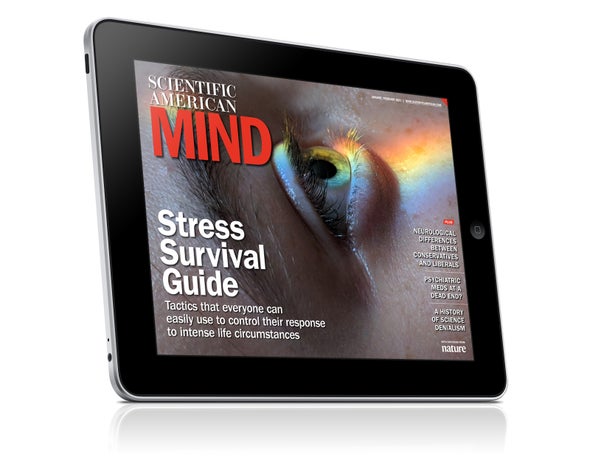If you’ve ever watched late-night TV, you’ve likely seen unfortunate advertisements for diet pills that claim to rid you of belly fat that arose from high levels of the stress hormone cortisol in the body. The pills are bunk, but the relation between cortisol levels in the body and chronic stress are real. Stress response is a vital evolutionary adaptation that allows us to run from predators or catch a train. Even if we haven’t been doing either in 2020, stress levels are still running high—blame the TV again. And the pandemic.
Chronic high stress levels mean constant inflammation and lead to illness and burnout. It turns out that we have the power to decrease the physiological stress response by manipulating two bodily systems on the frontlines of stress detection: the breath and our eyes. In this edition’s cover story, neuroscientist Andrew Huberman gives simple but powerful tips for how to get a handle on your body’s stress response immediately (see “Secrets to Surviving Stressful Times”). I can’t guarantee that the rest of the articles in this issue won’t get your heart pounding in anger or fear, but at least you will have the tools to relax.



